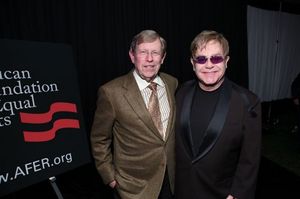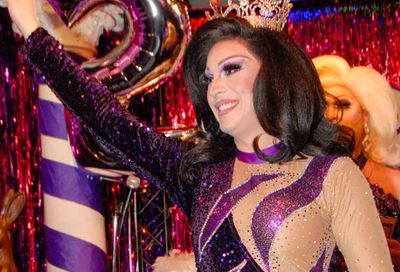Parties In Prop 8 Case Spar Over Standing, State Law Questions
The U.S. Court of Appeals for the Ninth Circuit, in considering whether the proponents of California’s Proposition 8 even have the legal ability to appeal the trial court decision in Perry v. Schwarzenegger, decided on Jan. 4 to send a request to the California Supreme Court. The federal appellate panel asked the state high court how it interpreted an area of state law relating to standing, which is a constitutional requirement for cases heard by federal courts.
The federal court is looking for an answer to what is called a “certified question” asking whether California’s constitution or laws give initiative proponents “either a particularized interest in the initiative’s validity or the authority to assert the State’s interest in the initiative’s validity.”
 Over the past week, the parties have submitted their views of the matter to the California Supreme Court, which is yet to decide if it’s going to decide the question or not. Under California’s court rules, “any party or other person or entity wanting to support or oppose the request must send a letter to the Supreme Court” within 20 days of the certification — which was Monday, Jan. 24.
Over the past week, the parties have submitted their views of the matter to the California Supreme Court, which is yet to decide if it’s going to decide the question or not. Under California’s court rules, “any party or other person or entity wanting to support or oppose the request must send a letter to the Supreme Court” within 20 days of the certification — which was Monday, Jan. 24.
The attorneys for the proponents told the California Supreme Court that it should accept the certified question, arguing that the question “is of overriding importance” because the Ninth Circuit’s jurisdiction to hear the appeal “depends upon Proponents’ standing.” More broadly, the lawyers assert that “the importance of the question presented to this Court extends beyond the specific context of Proposition 8 to the very integrity of the initiative process itself.”
Proponents of initiatives should be able to defend the initiatives in court when state officeholders decline to do so, the proponents’ lawyers argue, “to maintain[] the integrity of the precious initiative right.”
Lawyers for the plaintiffs in the Perry case — same-sex couples who wish to marry and, therefore, oppose Proposition 8 — argue that the California court should not take the certified question because the “particularized interest” inquiry is a federal one the resolution of which the California court “cannot provide any unique insights” and the “State’s interest,” the lawyers argue, is “well-settled” in the negative. This is, in part, because “the Attorney General has the discretion to decide whether to defend an unconstitutional measure or to appeal an adverse judgment.”
Additionally, they argue, “[g]ranting the certification request would needlessly prolong the resolution of this case and impose additional, irreparable harm on plaintiffs.”
Within 10 days of this initial round of letters, “any party may send a reply letter to the Supreme Court” — meaning, by Feb. 3 for the last letter. Once all of the letters have been submitted, a majority of the court must decide to accept the question in order to take the matter.
If the court decides to take the matter, under the rules, a full briefing schedule of support and opposition to the certified question would take place, with oral argument likely to follow. Then, the opinion of the court would be directed to the Ninth Circuit, which would then decide how that opinion impacts the question of whether the Proposition 8 proponents have standing to appeal the Perry decision striking down Proposition 8.
Only then, if it decides the proponents have standing, would the Ninth Circuit decide the merits of the case challenging the constitutionality of Proposition 8.
Read the letters to the California Supreme Court:
- The letter for the proponents: CooperKirkLtr.pdf
- The letter for the plaintiffs: GibsonDunnLtr.pdf
[Photo: Elton John, right, with Ted Olson, attorney for the Perry plaintiffs, at a January 2011 event benefiting the American Foundation for Equal Rights, which has brought the Proposition 8 lawsuit. (Photo courtesy of AFER by Alex J. Berliner/abimages.)]
Support Metro Weekly’s Journalism
These are challenging times for news organizations. And yet it’s crucial we stay active and provide vital resources and information to both our local readers and the world. So won’t you please take a moment and consider supporting Metro Weekly with a membership? For as little as $5 a month, you can help ensure Metro Weekly magazine and MetroWeekly.com remain free, viable resources as we provide the best, most diverse, culturally-resonant LGBTQ coverage in both the D.C. region and around the world. Memberships come with exclusive perks and discounts, your own personal digital delivery of each week’s magazine (and an archive), access to our Member's Lounge when it launches this fall, and exclusive members-only items like Metro Weekly Membership Mugs and Tote Bags! Check out all our membership levels here and please join us today!




















